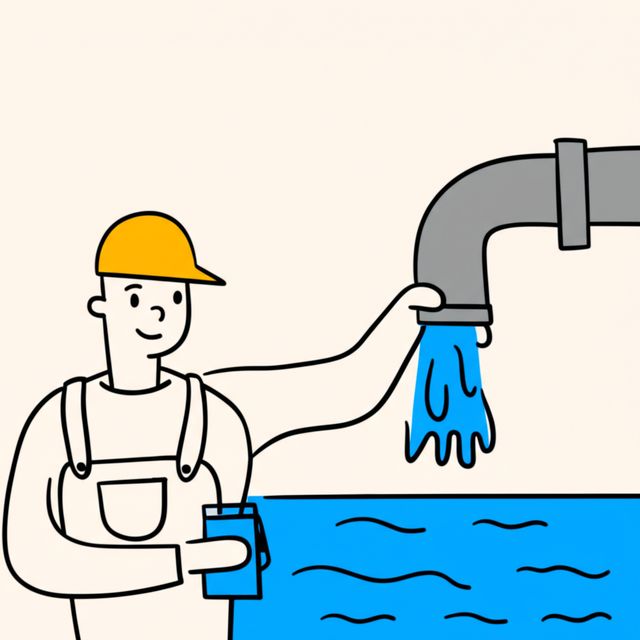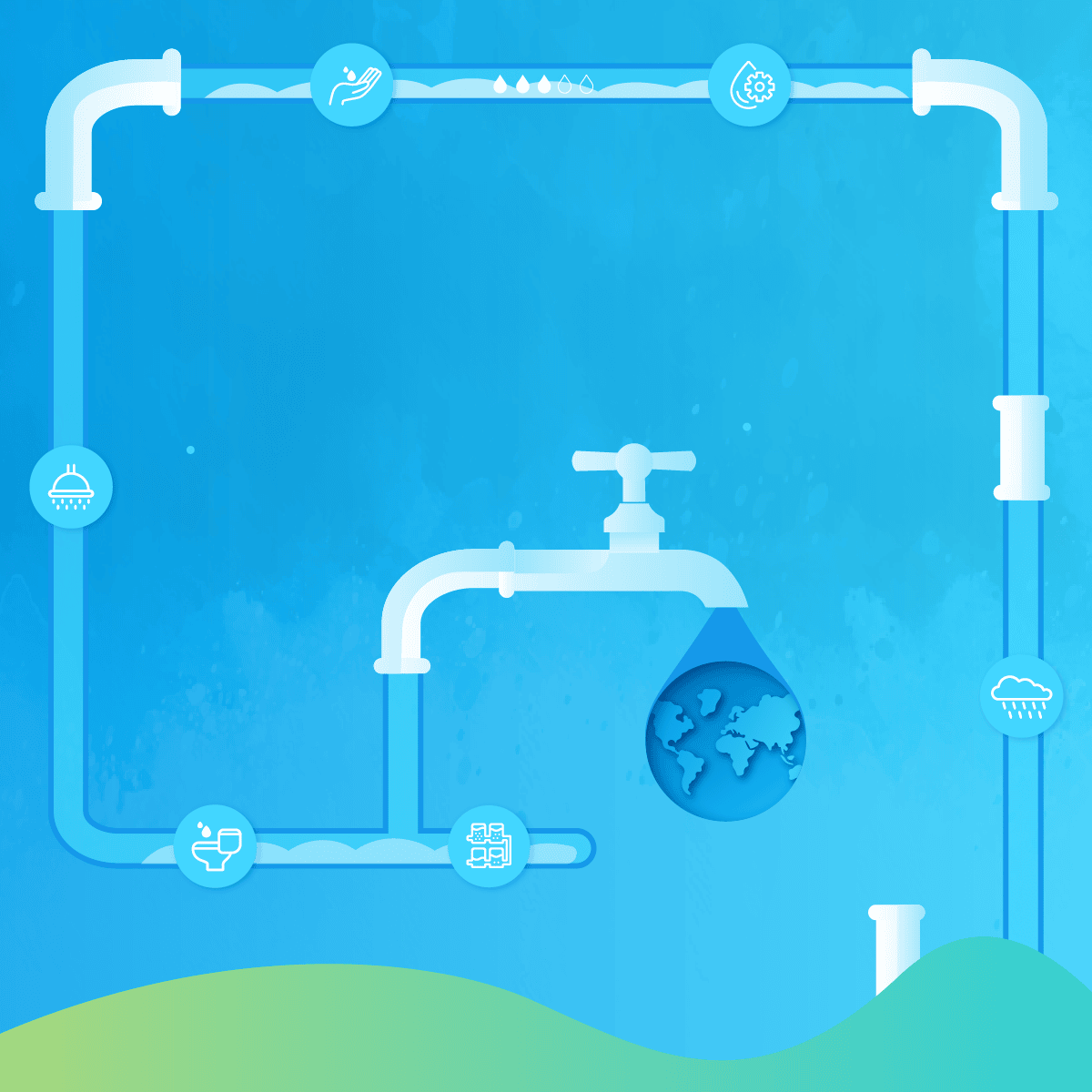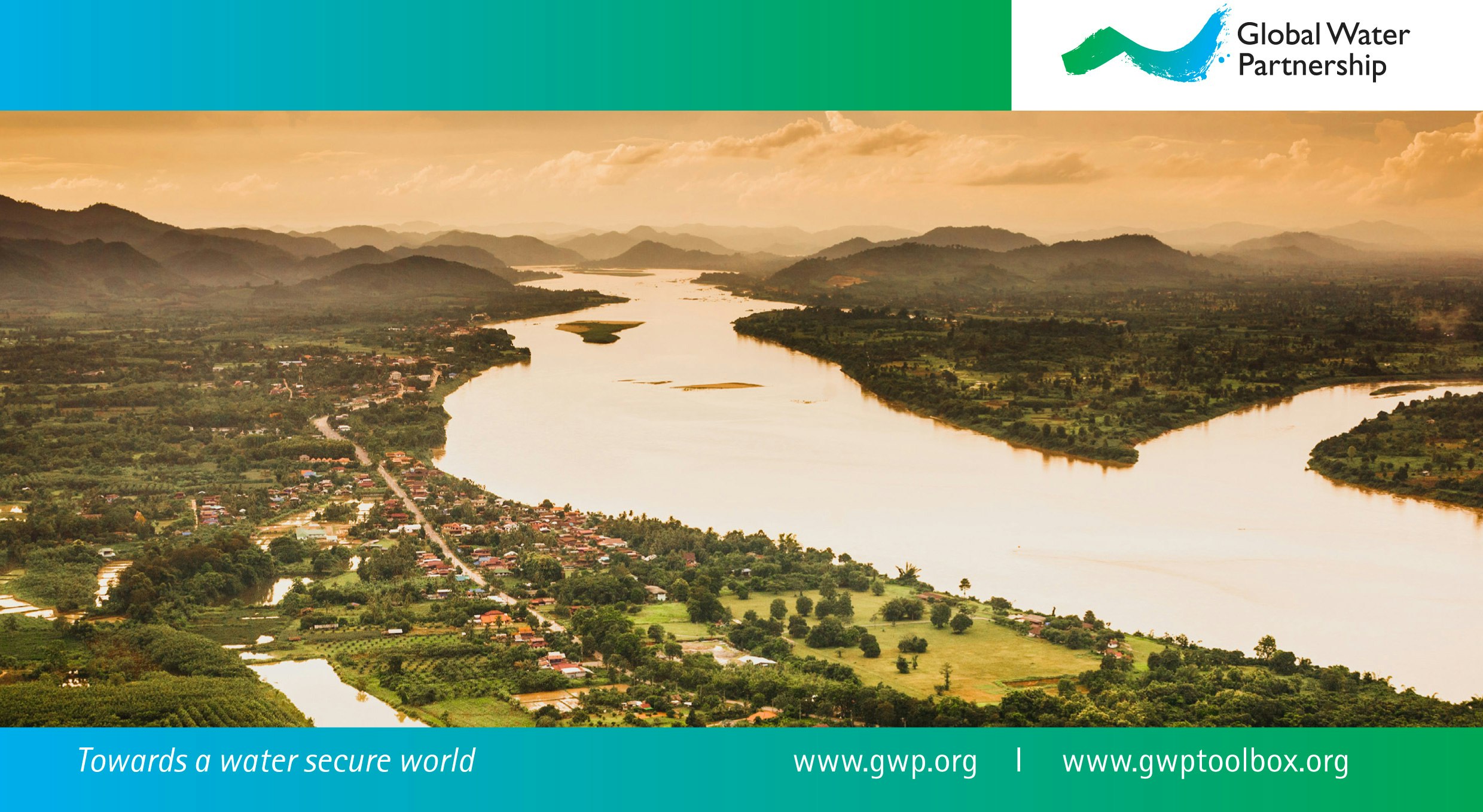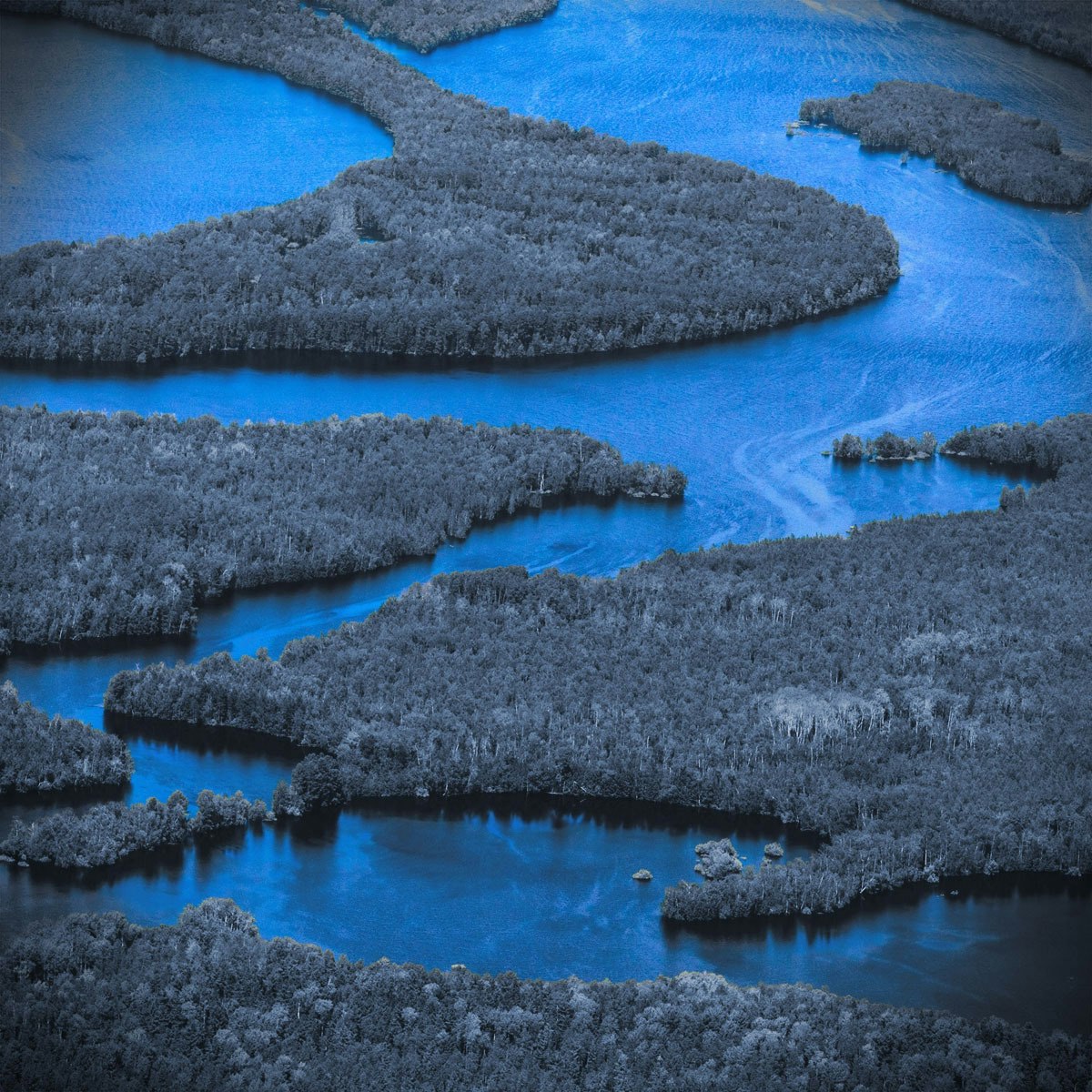Water Resource Manager
Exploring a Career as a Water Resource Manager
Water Resource Management is a critical field focused on the planning, development, distribution, and management of the optimal use of water resources. It involves overseeing activities related to managing water quantity and quality across various sectors, ensuring sustainable practices for current and future generations. Professionals in this field work at the intersection of science, policy, engineering, and economics to address complex water challenges.
Working as a Water Resource Manager offers the chance to make a tangible impact on environmental sustainability and community well-being. The role often involves tackling significant issues like water scarcity, pollution control, and flood management. It is an inherently interdisciplinary career, requiring collaboration with engineers, scientists, policymakers, and the public, making it intellectually stimulating and dynamic.
What Does a Water Resource Manager Do?
Understanding the core functions of a Water Resource Manager provides clarity on the demands and rewards of this profession. It's a role that blends technical knowledge with strategic oversight and communication.
Primary Responsibilities
Water Resource Managers are primarily responsible for the strategic planning and implementation of policies related to water use and conservation. This includes developing long-term water supply plans, managing water infrastructure projects like dams, levees, and treatment plants, and ensuring compliance with environmental regulations. They often oversee the allocation of water resources among competing users, such as agriculture, industry, and municipalities.
Policy implementation is a key aspect, requiring managers to translate broad legislative mandates and regulations into actionable programs. Infrastructure planning involves assessing current needs, forecasting future demands, and coordinating the design and construction of necessary facilities. This often requires securing funding, managing budgets, and overseeing project timelines.
These professionals play a vital role in protecting water quality, developing strategies to mitigate pollution, and restoring degraded aquatic ecosystems. They work to balance human needs with ecological health, ensuring the long-term viability of water resources.
Day-to-Day Tasks
The daily routine of a Water Resource Manager can be varied. A significant portion of their time may be spent on data analysis, using tools like Geographic Information Systems (GIS) to model water flow, assess water quality data, or map watershed characteristics. They analyze trends, predict potential issues, and evaluate the effectiveness of management strategies.
Stakeholder collaboration is another crucial daily activity. This involves meeting with community groups, government agencies, industry representatives, and environmental organizations to discuss water issues, negotiate agreements, and build consensus on management plans. Effective communication and negotiation skills are essential for navigating diverse interests and potential conflicts.
Other tasks might include preparing reports and presentations, managing staff and budgets, responding to emergencies like floods or droughts, and staying updated on the latest research, technologies, and regulations in the field.
Public vs. Private Sector Roles
Water Resource Managers work in both the public and private sectors, and their roles can differ significantly. In the public sector, such as federal, state, or local government agencies (like the EPA or USGS), the focus is often on policy development, regulation enforcement, large-scale infrastructure projects, and ensuring equitable water access for the public.
Public sector managers are typically involved in long-range planning for regions or basins, managing public water utilities, and addressing broad environmental concerns. Their work is heavily influenced by legislation, public funding cycles, and political considerations. Transparency and public accountability are paramount.
In the private sector, managers might work for consulting firms, industrial companies, agricultural businesses, or private utility companies. Here, the focus may be on optimizing water use for specific operations, ensuring compliance for a particular company, developing innovative water treatment technologies, or providing expert advice to clients. Private sector roles often involve more direct project management and business development aspects.
Formal Education Pathways
A strong educational foundation is typically required to enter and advance in the field of water resource management. This involves specific degree programs and relevant coursework.
Relevant Degrees and Fields of Study
Most entry-level positions require at least a bachelor's degree. Common fields of study include Environmental Science, Environmental Engineering, Civil Engineering (with a water resources focus), Hydrology, Geology, Geography, or Public Policy with an environmental specialization. These programs provide the necessary scientific and technical background.
For more advanced roles, particularly those involving research, policy development, or senior management, a master's degree or even a Ph.D. is often preferred or required. Graduate studies allow for deeper specialization in areas like hydrogeology, water quality modeling, environmental law, or resource economics.
Choosing a program accredited by relevant professional bodies can enhance career prospects. Look for degrees in fields like engineering, environmental science, or geology offered by reputable universities.
Key Coursework
Core coursework often includes subjects fundamental to understanding water systems and their management. Hydrology courses cover the movement, distribution, and quality of water on Earth. Fluid mechanics is essential for understanding water flow in natural channels and engineered systems.
Environmental chemistry and biology courses help in understanding water quality issues and ecosystem impacts. Courses in Geographic Information Systems (GIS) and remote sensing are increasingly important for data analysis and spatial modeling in water management.
Furthermore, understanding the legal and policy landscape is critical. Coursework in Water Law, environmental policy, and resource economics provides the framework for navigating regulatory requirements and making informed management decisions. Climate science courses are also vital for understanding the impacts of climate change on water resources.
These foundational books offer comprehensive insights into water resources engineering and hydrology principles.
Internships and Research Opportunities
Practical experience gained through internships or research is highly valuable. Internships with government agencies, consulting firms, or non-profits provide real-world exposure to the challenges and practices of water resource management. They offer opportunities to apply classroom knowledge and develop professional networks.
Engaging in research projects, often available through university departments or research centers, allows students to delve deeper into specific topics. This can involve fieldwork, laboratory analysis, or computer modeling, contributing to scientific understanding and potentially leading to publications or conference presentations.
These experiences not only strengthen a resume but also help individuals clarify their specific interests within the broad field of water resource management. They demonstrate initiative and practical skills to potential employers.
Online Learning and Skill Development
For those seeking to enter the field, transition from another career, or enhance existing skills, online learning offers flexible and accessible pathways. It can supplement formal education or provide targeted training in specific areas.
Transitioning via Online Education
Transitioning into water resource management through online education is increasingly feasible, particularly for acquiring specific technical skills or foundational knowledge. While a formal degree is often preferred for core roles, online courses can bridge knowledge gaps, demonstrate commitment, and provide valuable credentials.
Individuals with backgrounds in related fields like engineering, environmental science, data analysis, or policy may find online courses particularly useful for specializing in water-related topics. These courses can cover areas like GIS, watershed modeling, water quality analysis, or specific regulatory frameworks.
It's important to be realistic, however. While online courses offer excellent theoretical knowledge and skills training, they may not fully replace the hands-on field or lab experience often gained in traditional degree programs. Combining online learning with volunteer work, internships, or entry-level positions can create a more robust pathway.
OpenCourser provides tools to help learners navigate this path. You can browse courses in Environmental Sciences, save options to a personal list using the "Save to List" feature, and compare course content to build a personalized learning plan.
Recommended Online Topics
Several key areas are well-suited for online learning. Courses focusing on watershed modeling software (like HEC-RAS or SWAT) provide practical skills highly sought after by employers. Understanding GIS applications specific to water resources is another critical skill set readily learnable online.
Online courses covering environmental regulations, water law, and policy analysis offer essential context for management decisions. Topics like water treatment technologies, sustainable water use practices, climate change adaptation strategies, and water economics are also available through various online platforms.
These courses provide focused learning on crucial aspects of water resource management, from specific technologies to broader governance issues.
Portfolio-Building Projects
Supplementing online coursework with independent projects is an excellent way to demonstrate practical skills and build a portfolio. Learners can undertake projects like analyzing publicly available water quality data for a local river, creating GIS maps of a watershed, or developing a hypothetical water conservation plan for a community.
Contributing to open-source environmental modeling projects or participating in citizen science initiatives related to water monitoring can also provide valuable experience. Documenting these projects clearly, outlining the methodologies used and the results obtained, creates tangible evidence of capabilities for potential employers.
Consider using platforms like OpenCourser not just to find courses, but also to discover related projects or datasets mentioned in course materials or forums. Sharing your completed projects, perhaps through a personal website or professional networking platform, can further enhance visibility.
Career Progression for Water Resource Managers
The career path for a Water Resource Manager typically involves advancement through roles with increasing responsibility, complexity, and leadership expectations.
Entry-Level Roles
Graduates often start in entry-level positions such as Water Resource Technician, Field Technician, Environmental Analyst, or Junior Hydrologist. These roles typically involve fieldwork (collecting water samples, measuring flow rates), data entry and basic analysis, assisting senior staff with modeling or report writing, and learning regulatory compliance procedures.
These positions provide essential hands-on experience and a foundational understanding of the practical aspects of water management. They are crucial for building the technical skills and knowledge needed for advancement.
Early career professionals might focus on specific tasks like operating water monitoring equipment, performing routine water quality tests, or using GIS software for basic mapping tasks under supervision.
Mid-Career Advancement
With experience, professionals can advance to roles like Water Resource Specialist, Project Manager, Policy Advisor, or Senior Hydrologist. Mid-career positions often involve managing specific projects, leading small teams, conducting more complex analyses and modeling, and contributing to policy development or planning efforts.
Responsibilities may include developing water management plans, writing technical reports, presenting findings to stakeholders, managing budgets for specific projects, and mentoring junior staff. Strong analytical, project management, and communication skills become increasingly important at this stage.
Obtaining professional certifications, such as Professional Hydrologist (PH) or certifications related to specific software or technical areas, can aid in mid-career advancement. Advanced degrees may also open doors to more specialized or research-oriented roles.
Leadership Trajectories
Senior-level positions include roles like Director of Water Resources, Principal Consultant, Senior Policy Advisor, or Chief Hydrologist. These positions involve significant leadership, strategic planning, and decision-making responsibilities. Individuals in these roles often oversee large departments or programs, manage substantial budgets, and represent their organizations in high-level negotiations or policy discussions.
Leadership trajectories require a deep understanding of the technical aspects combined with strong management, communication, and strategic thinking skills. Senior managers shape the direction of water policy and practice, influencing resource allocation and sustainability efforts on a larger scale.
Some experienced professionals may transition into independent consulting, providing expert advice to various clients, or move into academic roles involving research and teaching.
Industry Trends Shaping the Field
The field of water resource management is constantly evolving, influenced by environmental changes, technological advancements, and shifting societal priorities.
Impact of Climate Change
Climate change is perhaps the most significant driver reshaping water resource management. Changing precipitation patterns, increased frequency and intensity of extreme weather events (droughts and floods), rising sea levels, and melting glaciers directly impact water availability, quality, and demand.
Managers must now incorporate climate projections into long-term planning, develop adaptation strategies to enhance resilience, and manage increased uncertainty. This includes planning for potential shifts in water supply, updating infrastructure designs to withstand more extreme conditions, and implementing demand management strategies.
The focus is shifting towards building climate resilience in water systems, requiring new approaches and tools for risk assessment and adaptation planning.
This course explores climate change impacts specifically within water utilities.
Adoption of New Technologies
Technological advancements are transforming how water resources are monitored, analyzed, and managed. Remote sensing technologies, including satellite imagery and drones, provide powerful tools for monitoring large areas, assessing land use changes, and tracking water body dynamics.
Artificial Intelligence (AI) and machine learning are being used for predictive modeling, optimizing water distribution systems, detecting leaks, and improving water quality forecasting. Smart water meters and sensor networks enable real-time data collection and more efficient system operation. According to some industry analyses, digitalization is seen as key to addressing future water challenges.
Water Resource Managers need to stay abreast of these technologies and understand how to integrate them effectively into their work. This requires continuous learning and adaptation to new digital tools and data analysis techniques.
Shift Toward Decentralized Systems
There is a growing trend towards exploring and implementing more decentralized water management systems. These systems, such as rainwater harvesting, greywater recycling, and localized wastewater treatment, can supplement traditional centralized infrastructure, particularly in urban areas or remote communities.
Decentralized approaches can offer benefits like increased resilience, reduced pressure on large infrastructure, lower energy consumption for water transport, and greater community involvement. Managing these hybrid systems requires integrating diverse technologies and coordinating between centralized utilities and local initiatives.
This shift reflects a broader move towards integrated water resource management (IWRM) and nature-based solutions, considering the entire water cycle and ecosystem health in planning and management.
These books delve into the concept of integrated management and the broader societal context of water use.
Ethical Challenges in Water Allocation
Water resource management is fraught with ethical considerations, particularly concerning the equitable allocation of a finite and essential resource among competing needs.
Balancing Competing Needs
A core ethical challenge lies in balancing the water demands of different sectors: agriculture (often the largest consumer), industry, energy production, municipal water supply for drinking and sanitation, and environmental flows needed to sustain ecosystems. Decisions about water allocation inevitably create winners and losers.
Managers must navigate these competing demands, often guided by legal frameworks like prior appropriation or riparian rights, but also considering principles of fairness, economic efficiency, and environmental sustainability. Striking this balance requires transparent processes, robust data, and stakeholder engagement.
The increasing pressure from population growth and climate change exacerbates these allocation conflicts, making ethical decision-making even more complex and critical.
Equity and Indigenous Water Rights
Ensuring equitable access to safe and sufficient water for all communities, including marginalized and low-income populations, is a fundamental ethical imperative. Historical inequities often mean certain groups face greater water insecurity or exposure to contaminated water.
Recognizing and respecting Indigenous water rights presents a specific and significant ethical challenge in many regions. Historical treaties, cultural practices, and inherent rights related to water resources must be considered and integrated into management decisions, often requiring consultation and co-management approaches.
Addressing these equity issues involves not just fair allocation but also ensuring meaningful participation of all affected communities in decision-making processes and investing in infrastructure for underserved populations.
This book examines institutional aspects related to water allocation and equity.
Contentious Resource Disputes
Water resources, especially rivers and aquifers that cross political boundaries (transboundary waters), are frequent sources of conflict. Disputes can arise between states, nations, or different user groups within a single basin over water quantity, quality, infrastructure development (like dams), and allocation rules.
Resolving these disputes requires sophisticated negotiation, diplomacy, and often the application of international water law principles. Water Resource Managers involved in transboundary issues must navigate complex political landscapes and work towards cooperative solutions based on principles like equitable and reasonable utilization and the obligation not to cause significant harm.
Case studies of past and ongoing water disputes provide valuable lessons in conflict resolution and cooperative management strategies.
This book is a foundational text on the legal frameworks governing international watercourses.
Global Opportunities and Challenges
Water resource management is a global concern, offering opportunities for professionals to work internationally, but also presenting unique challenges related to diverse environments and cultures.
Demand in Water-Stressed Regions
Many regions around the world, including the Middle East and North Africa (MENA), Sub-Saharan Africa, parts of Asia, and even areas within developed countries, face significant water stress due to arid climates, growing populations, and inefficient water use. There is a high demand for skilled water resource managers in these regions.
Opportunities exist with international development organizations (like the World Bank or UN agencies), NGOs, consulting firms, and national governments working on projects related to water supply, sanitation, irrigation efficiency, and integrated water resource management.
Working in these contexts often requires adapting technical solutions to local conditions, understanding socio-economic factors, and contributing to capacity building efforts.
This book provides context on water, sanitation, and hygiene (WASH) in relation to broader development goals.
Transboundary Water Management
Over 260 river basins worldwide are shared by two or more countries, making transboundary water management a critical area. Professionals in this field work on fostering cooperation between nations sharing water resources, developing joint management plans, and resolving disputes peacefully.
This often involves complex negotiations, understanding international water law, and facilitating data sharing and joint monitoring programs. Organizations like the UN, regional river basin commissions, and specialized research institutes play key roles in promoting transboundary cooperation.
Skills in diplomacy, cross-cultural communication, and conflict resolution are essential for success in this specialized area of water resource management.
Skills for International Roles
Working internationally in water resource management often requires additional skills beyond technical expertise. Proficiency in foreign languages is highly advantageous, facilitating communication with local partners and communities. Understanding cultural nuances and adapting management approaches to different social contexts is crucial.
Experience in diplomacy, negotiation, and cross-cultural collaboration is highly valued, particularly for roles involving transboundary waters or international development projects. Flexibility, adaptability, and resilience are also important personal attributes for navigating the challenges of working in diverse and sometimes difficult environments.
Building a network through international conferences, professional associations, and online platforms can help identify opportunities and connect with peers working globally.
Explore international perspectives with courses offered by international institutions.
Frequently Asked Questions (FAQs)
Navigating the path to becoming a Water Resource Manager often raises questions. Here are answers to some common concerns, aiming to provide clarity and set realistic expectations.
Entering the Field Without an Engineering Background
Yes, it is definitely possible to enter water resource management without a traditional engineering degree. Backgrounds in environmental science, hydrology, geology, geography, planning, policy, economics, or even biology can provide a strong foundation. Many roles focus more on policy analysis, planning, stakeholder engagement, environmental assessment, or data analysis rather than pure engineering design.
However, a solid understanding of scientific principles, particularly hydrology and basic environmental processes, is essential. Supplementing a non-engineering degree with targeted coursework or online training in areas like GIS, water quality, or basic hydraulics can strengthen your profile. Highlighting analytical, communication, and problem-solving skills is key.
Focus on roles that align with your specific background, such as Environmental Analyst, Water Resource Planner, or Policy Advisor, rather than those explicitly requiring professional engineering licensure.
Impact of Automation on Job Prospects
Automation and technology (like AI, remote sensing, smart sensors) are changing the field, but are generally seen as tools that enhance rather than replace human expertise. Automation can handle routine data collection and analysis tasks more efficiently, freeing up managers to focus on higher-level strategic planning, interpretation, decision-making, and stakeholder engagement.
Job roles may evolve, requiring greater proficiency in data interpretation, digital tool usage, and managing technology-driven projects. According to the U.S. Bureau of Labor Statistics, the overall employment for environmental scientists and specialists (which includes many water resource professionals) is projected to grow, suggesting continued demand despite automation.
The ability to integrate technological insights with policy understanding, ecological knowledge, and communication skills will remain critical and less susceptible to automation. Lifelong learning to stay updated with new technologies will be increasingly important.
Enhancing Employability with Certifications
Several professional certifications can enhance employability and demonstrate specialized expertise. For those with relevant scientific backgrounds, the Professional Hydrologist (PH) certification from the American Institute of Hydrology (AIH) is well-regarded. Certifications in Geographic Information Systems (GISP) are valuable given the prevalence of GIS tools.
Specialized certifications related to erosion and sediment control (like CPESC), stormwater management, or specific modeling software can be beneficial depending on the specific role or sector. For those in engineering-focused roles, Professional Engineer (PE) licensure is often required, especially for signing off on designs.
While not always mandatory, certifications signal commitment to the profession and a verified level of competence in specific areas, which can be advantageous in a competitive job market.
Fieldwork Requirements in Senior Roles
The amount of fieldwork typically decreases as professionals advance into more senior management or policy roles. Entry-level positions often involve significant time outdoors collecting data, inspecting sites, or overseeing field operations. Mid-career roles may involve a mix of office work and periodic field visits for project oversight or site assessments.
Senior roles like Directors or Principal Consultants are predominantly office-based, focusing on strategic planning, budget management, policy development, stakeholder meetings, and team leadership. However, some level of field awareness gained earlier in the career remains valuable for informed decision-making.
Individuals who prefer hands-on fieldwork might choose to specialize in field-oriented technical roles rather than pursuing purely managerial tracks.
Competitiveness of Federal Water Management Positions
Positions with federal agencies involved in water management (e.g., USGS, EPA, US Army Corps of Engineers, Bureau of Reclamation, NOAA) are generally considered competitive. These agencies often offer stable employment, good benefits, and opportunities to work on large-scale, impactful projects.
Competition can be high due to the desirability of these positions. Successful candidates typically possess strong academic credentials, relevant experience (often including internships with federal agencies), and familiarity with government hiring processes (e.g., navigating USAJOBS). Veterans' preference can also be a factor.
Networking, gaining relevant experience, tailoring applications carefully to specific job requirements, and potentially pursuing advanced degrees can improve competitiveness for federal roles.
Career Longevity Amid Climate Uncertainty
The challenges posed by climate change are actually likely to increase the demand and importance of water resource management professionals, enhancing career longevity rather than diminishing it. Adapting to changing water availability, managing more frequent extreme events, and developing sustainable water strategies are becoming critical societal priorities.
Professionals skilled in climate adaptation planning, water conservation technologies, risk assessment under uncertainty, and resilient infrastructure design will be highly sought after. The field itself is adapting, incorporating climate science more deeply into practice.
While the specific tasks and priorities may shift, the fundamental need to manage water resources effectively and sustainably in a changing world ensures the long-term relevance and necessity of this career path. Continuous learning and adapting skills to address climate-related challenges will be key to sustained success.
Consider exploring resources on Sustainability and Climate Science to stay informed.
Concluding Thoughts
A career as a Water Resource Manager places you at the forefront of addressing one of the most fundamental challenges of our time: ensuring the sustainable management of water for both human societies and ecosystems. It demands a blend of scientific knowledge, technical skill, policy acumen, and collaborative spirit. While the path requires dedication and continuous learning, the potential to contribute meaningfully to environmental health and community well-being is immense.
Whether you are exploring career options, considering a transition, or seeking to advance within the field, resources like OpenCourser can help you find the educational tools to build your foundation or specialize your expertise. The challenges are significant, from climate change impacts to complex ethical dilemmas, but for those passionate about water and sustainability, it offers a rewarding and impactful professional journey.


















